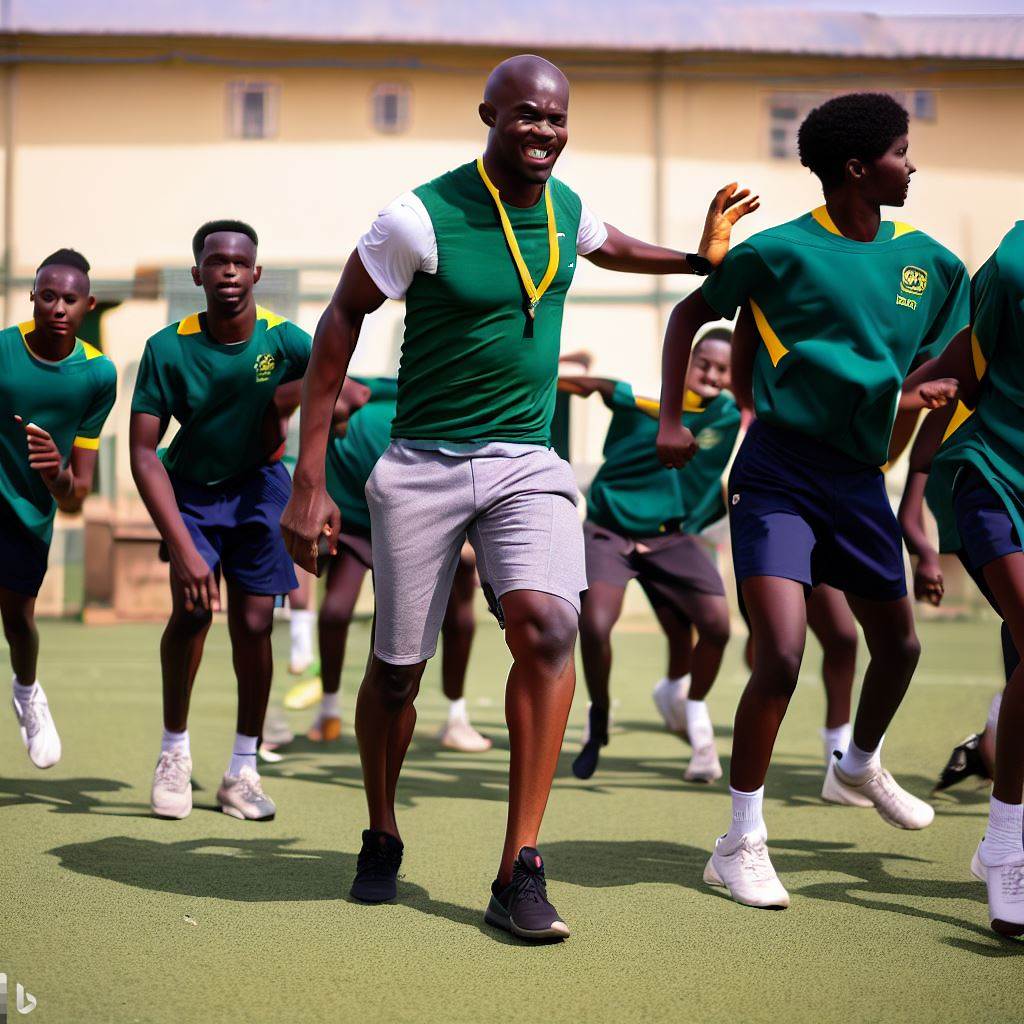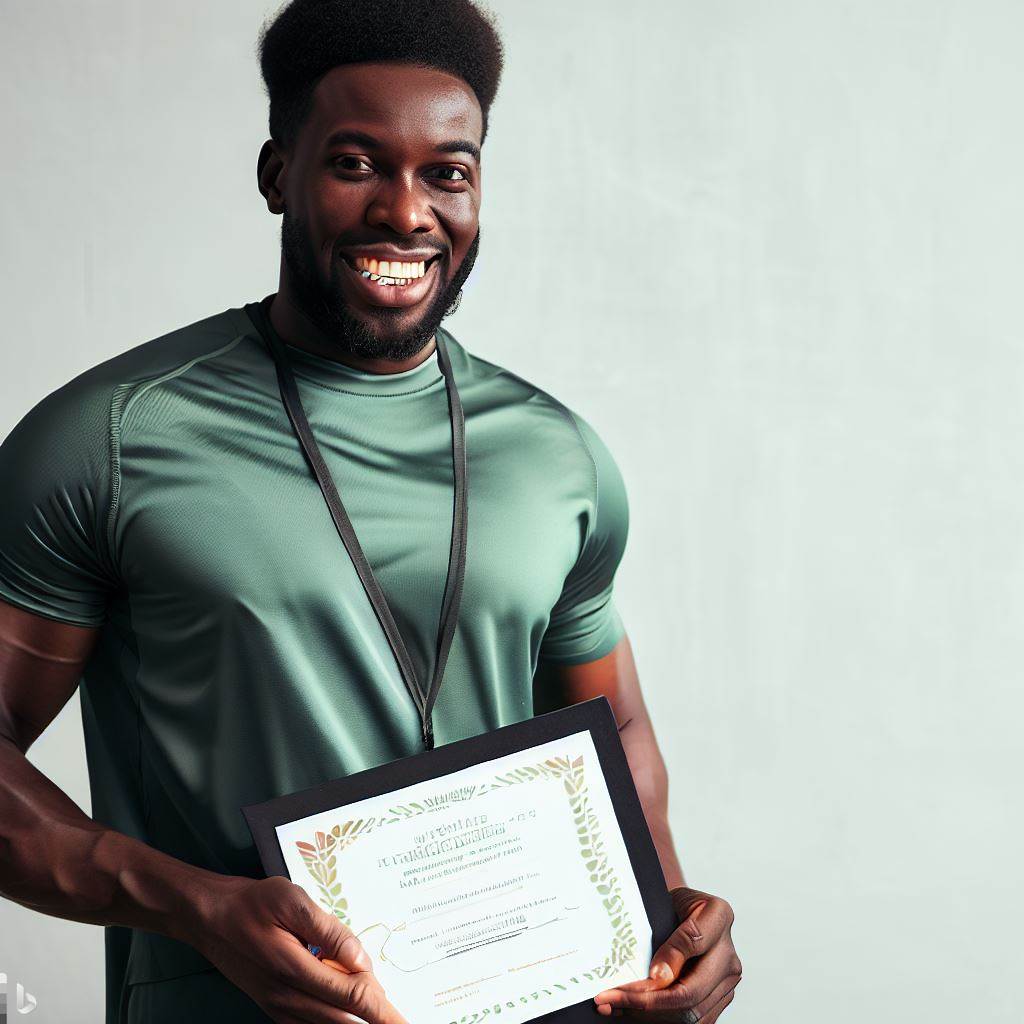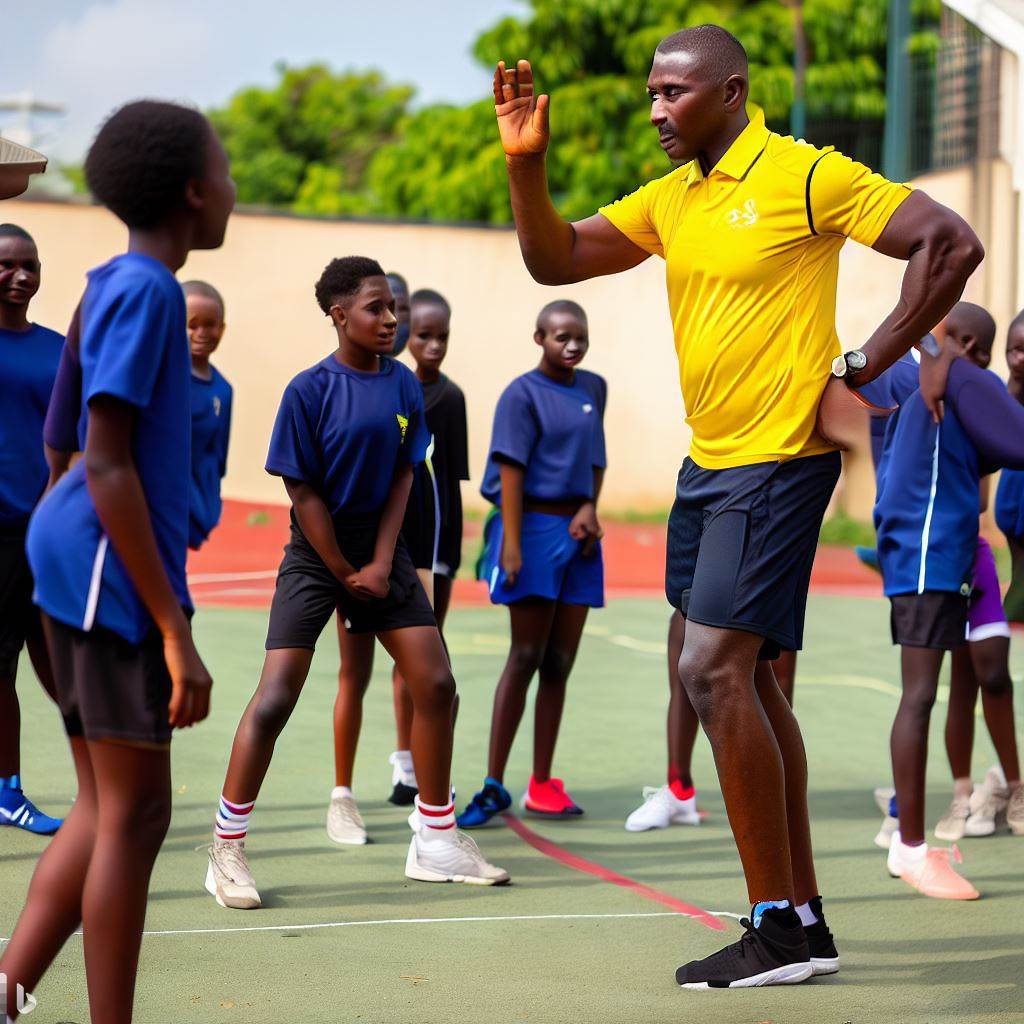Introduction
Physical Education (PE) teachers play a vital role in promoting health and wellness in communities.
They are responsible for educating and inspiring students to lead active lifestyles and make positive choices regarding their well-being.
Healthy communities are essential as they contribute to the overall well-being and quality of life for residents.
In this blog post, we will explore the significant impact PE teachers have in building healthy communities.
A. Brief Explanation of the Role of PE Teachers
PE teachers are not just sports instructors; they are educators who teach students about the importance of physical activity, nutrition, and overall health.
They design and implement physical education programs that foster the development of physical skills, promote fitness, and instill lifelong healthy habits.
B. Statement on the Importance of Healthy Communities
Healthy communities provide individuals with a supportive environment that encourages wellness, physical activity, and positive lifestyle choices.
These communities address the physical, social, and emotional needs of their residents, leading to enhanced overall well-being.
C. Thesis statement
PE Teachers Play a Crucial Role in Building Healthy Communities
PE teachers hold a crucial role in building healthy communities by educating and empowering individuals to prioritize their health.
They equip students with the knowledge, skills, and motivation necessary to lead active and healthy lives, ultimately contributing to the development of resilient and prosperous communities.
In the following sections, we will explore the specific ways in which PE teachers contribute to building healthy communities, including promoting physical activity, fostering social connections, and cultivating a culture of wellness.
Through their dedication and passion, PE teachers create a ripple effect that positively impacts individuals, families, and entire communities.
Stay tuned for a deeper dive into the transformative role of PE teachers in building healthy communities.
Read: Women in Athletic Training in Nigeria: Opportunities and Challenges
The Impact of PE Teachers on Children’s Health
A. Promoting physical activity and exercise
- PE teachers play a vital role in teaching fundamental movement skills to children.
- They provide structured physical activity opportunities for children to engage in.
- PE teachers encourage children to develop lifelong physical fitness habits.
B. Fostering healthy habits
- PE teachers educate students on proper nutrition to promote healthy eating.
- They promote a balanced diet and healthy eating choices.
- PE teachers emphasize the importance of staying hydrated.
C. Addressing mental well-being
- PE teachers incorporate mindfulness and stress-reduction techniques into their classes.
- They create a safe and supportive environment for students to express themselves.
PE teachers have a profound impact on children’s health and well-being. They promote physical activity and exercise, contributing to healthier communities.
A fundamental role is teaching children fundamental movement skills, forming the basis for lifelong physical activity and sports participation.
Learning to run, jump, throw, and catch equips children for various physical activities.
Moreover, PE teachers provide structured physical activity opportunities. They design and lead exercises, games, and sports, improving fitness and teaching values like teamwork and fair play.
PE teachers also encourage lifelong physical fitness habits. By instilling a love for physical activity and emphasizing its long-term benefits, they aim to create a generation appreciating exercise beyond school years.
PE classes enable children to explore sports and activities, helping them discover passions they can pursue outside school.
Additionally, PE teachers promote healthy habits, educating about proper nutrition’s impact on overall health.
They emphasize balanced diets with fruits, vegetables, whole grains, and lean proteins while discouraging excessive sugars and processed foods.
Hydration’s significance is another focus. PE teachers stress the importance of drinking water before, during, and after exercise to maintain bodily functions and prevent dehydration.
Addressing mental well-being is crucial. PE teachers integrate mindfulness and stress-reduction techniques, fostering mental wellness alongside physical fitness.
By teaching relaxation exercises, breathing techniques, and positive self-talk, they provide students tools to manage stress.
Creating a supportive environment is fundamental. PE teachers aim for inclusivity, welcoming all students, regardless of abilities or interests.
This positive atmosphere builds self-confidence and encourages participation and self-expression.
In essence, PE teachers build healthier communities by promoting physical activity, healthy habits, and mental well-being.
Their dedication contributes to children’s well-being, setting them on a path to lifelong physical fitness and wellness.
Read: Continuing Education for Athletic Trainers in Nigeria

Building Teamwork and Social Skills
Physical education (PE) teachers play a crucial role in building healthy communities.
Through their guidance and expertise, they have the power to shape the future generation into responsible individuals with a strong sense of community.
One of the key aspects of their role is fostering teamwork and social skills among students.
A. Collaborative activities in PE classes
PE teachers incorporate various collaborative activities in their classes to develop teamwork skills among students. One effective way is through team sports and games.
These activities require students to work together, communicate, and strategize, enhancing their ability to cooperate and achieve common goals.
Additionally, group projects and problem-solving activities encourage students to collaborate, think critically, and come up with creative solutions.
These activities promote teamwork and teach students the importance of working together towards a shared objective.
B. Encouraging inclusivity
Inclusivity is another important aspect that PE teachers focus on. They strive to create a diverse and accepting atmosphere where every student feels included and valued.
By breaking down social barriers and promoting equality, PE classes become safe spaces where students can freely express themselves.
Moreover, PE teachers actively teach empathy and respect for others, helping students understand and appreciate different perspectives.
These lessons in inclusivity not only contribute to healthier communities but also prepare students to navigate a diverse society.
C. Promoting leadership skills
PE teachers also play a vital role in nurturing leadership skills among students. They provide opportunities for students to take up leadership roles within the class or during sports events.
By assigning responsibilities such as team captains or student coaches, PE teachers encourage students to step up, take charge, and guide their peers.
This fosters confidence, responsibility, and the ability to motivate and inspire others.
Furthermore, PE teachers focus on developing communication and decision-making abilities in students, crucial skills for effective leadership.
Through these tactics, PE teachers actively contribute to building healthy communities.
By emphasizing teamwork and social skills, they create an environment where students learn to value collaboration over competition.
Inclusivity ensures that all students feel a sense of belonging and respect for one another, strengthening the bonds within the community.
Moreover, by promoting leadership skills, PE teachers empower students to take initiative and make positive contributions to their communities outside the classroom.
In conclusion, PE teachers have a significant role in building healthy communities by fostering teamwork and social skills.
Collaborative activities, encouraging inclusivity, and promoting leadership skills are key aspects of their approach.
By focusing on these areas, PE teachers equip students with the necessary tools to become responsible, empathetic, and respectful individuals.
These skills extend beyond their time in PE classes and contribute to a healthier and more cohesive society.
Read: The Future of Athletic Training in Nigeria: Expert Insights
Promoting Community Engagement
A. Organizing Community Events and Sports Competitions
- Engage parents, teachers, and local organizations to foster a sense of community involvement.
- Encourage community members of all ages to actively participate in various physical activities.
Physical education (PE) teachers play a pivotal role in building healthy communities by actively involving various stakeholders.
By organizing community events and sports competitions, they bring together parents, teachers, and local organizations, fostering a sense of unity and shared purpose.
These events not only promote physical activity but also strengthen community bonds.
B. Collaboration with Other Educators and Professionals
- Collaborate with health educators and nutritionists to create comprehensive wellness programs.
- Partner with local sports clubs and recreation centers to expand access to physical activities.
PE teachers should work closely with health educators and nutritionists to develop holistic wellness programs.
This collaboration ensures that students receive well-rounded education on health and fitness.
Additionally, partnerships with local sports clubs and recreation centers extend the reach of physical activities, providing opportunities for lifelong fitness.
C. Parental Involvement and Support
- Maintain open communication with parents to convey the significance of physical education.
- Offer resources and information to empower parents in supporting their children’s health journey.
To create truly healthy communities, PE teachers must actively involve parents.
By maintaining open communication, teachers can explain the importance of physical education and its role in overall well-being.
Providing resources and information equips parents to play an active role in their children’s health journey.
In a nutshell, PE teachers are catalysts for building healthy communities. Through community events and partnerships, they inspire collective engagement in physical activities.
Collaborations with health professionals enrich the educational experience, and fostering parental involvement empowers families to prioritize health.
In this way, PE teachers contribute significantly to the well-being of not only students but also the broader community.
Read: Nigeria’s Assistant Coach Success Stories in 2022
Conclusion
PE teachers play a vital role in building healthy communities. Recapitulating, they educate and inspire students through physical activities, promoting active lifestyles.
Their contributions are crucial in improving physical fitness, mental well-being, and overall health. We should recognize and appreciate the tireless efforts of PE teachers in schools.
It is important to support and encourage their endeavors to create healthier communities.




